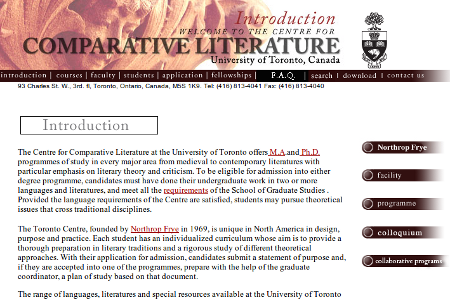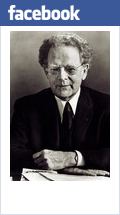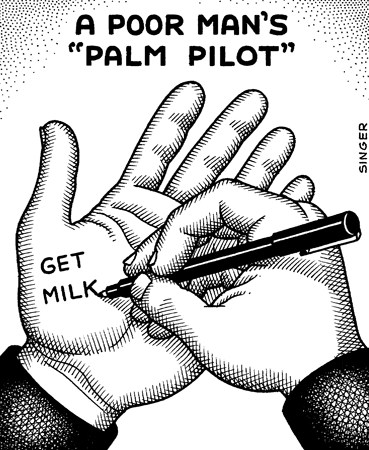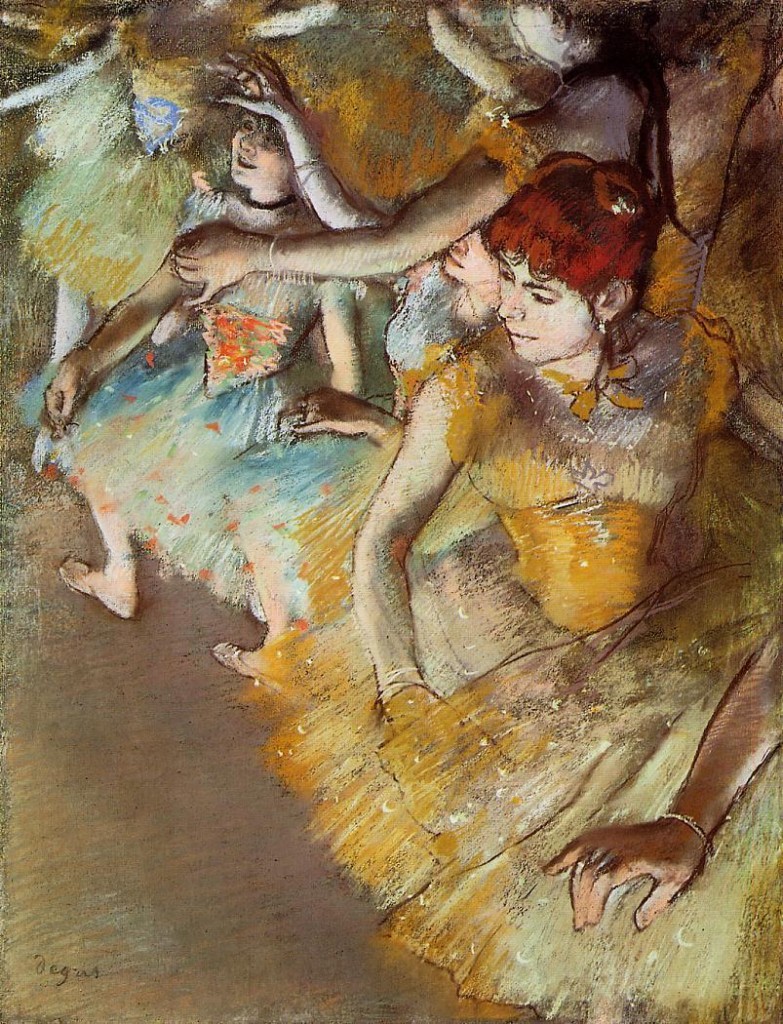
The Centre for Comparative Literature has for three decades invited a professor of international reputation to come to the Centre and deliver a series of lectures, a seminar course, a pro-seminar, and so on, as the Northrop Frye Professor of Literary Theory. The professorship is a visiting position and in recent years, at least since I started at the Centre, those obligations require at least a week long commitment.
During my time at the Centre, I’ve had the chance to talk to scholars about my research, and they have often made interesting suggestions or asked provocative questions. I think here particularly of Emily Apter, who was instrumental in getting me to think deeper about the relationship between Harold Bloom and Northrop Frye. Or, more recently, David Damrosch, who lectured on the virtues of World Literature. For those who do not know, the study of World Literature — and what precisely is meant by it — is a current debate in Comparative Literature Studies. Simon Fraser University recently initiated a “World Literature Program.” And yet the University of Toronto now suggests that it is time to shut down its famous Centre for Comparative Literature just as other universities are beginning to re-conceive and re-imagine the possibilities of comparative literature.
Over the years, some of the most important books in literary theory were written, in part, at the Centre for Comparative Literature: Paul Ricoeur’s Time and Narrative; The Political Unconscious by Fredric Jameson (the first Frye Professor); Culture and Imperialism by Edward Said. The full list of scholars who have been Frye Professors is impressive. And, I should point out, many Frygians have also held the post, such as Alvin Lee and Jonathan Hart.
In 2011, the Centre will welcome Carol Mavor as the Northrop Frye Professor. She will be at the Centre for about two weeks and her visit will conclude with the annual graduate student conference, which has become, in many respects, one of the (if not the) most important comparative literature conferences in Canada. This year, the theme of the conference will be “Iconoclasm: the Breaking and Making of Images“. The theme of iconicity could not be more relevant than right now, especially after the image of Northrop Frye this past week appeared on the front page of the Globe and Mail. Indeed, even David Naylor recognised this in his response to my letter on behalf of the conference committee.
In the coming years, the Centre has already confirmed that Franco Moretti will teach a seminar in the 2011-2012 academic session; and in the 2012-2013 session, we will welcome Judith Butler as Northrop Frye Professor in Literary Theory. As you can see, I hope, the Centre has, through the Northrop Frye Professorship in Literary Theory, managed to invite some of the most exciting theorists of literature who constantly challenge, in Dean Gertler’s words, “what was revolutionary or radical in the 60s.”
The proposed disestablishment of the Centre for Comparative Literature puts the position of Northrop Frye Professor in Literary Theory in significant doubt. Many of those who have accepted the invitation have explicitly done so because of the name attached to it. Piero Boitani, for instance, writes in his letter to President Naylor: “I have the honour of having been Northrop Frye Professor at the Centre in 2006 (and of having met Northrop Frye during a conference devoted to him at this University), and must confess my astonishment at this announcement.” Likewise, James Phelan in his letter says: “I am writing as a former Northrop Frye Visiting Professor at UT’s Centre for Comparative Literature to urge you to reconsider the plan to close the Centre in 2011. […] The Centre for Comparative Literature has long been a jewel in the lustrous crown of UT, because of the quality and diversity of both its faculty and its students. The reputation of the Centre—and its connection to Northrop Frye, a giant in the field of literary studies—made me feel deeply honored by the invitation to serve as a Visiting Professor.”
The loss of the Northrop Frye Professorship in Literary Theory is significant, and for Dean Gertler not to take this into consideration is distressing if not irresponsible. Thanks to this Professorship, students at the University of Toronto have had the opportunity to meet, work with, and learn from some of the most significant figures in Comparative Literature, Cultural Studies, and Literary Theory. This is yet another loss that the Dean of Arts and Sciences has failed to consider in his plan to “disestablish” Northrop Frye’s Centre for Comparative Literature.





